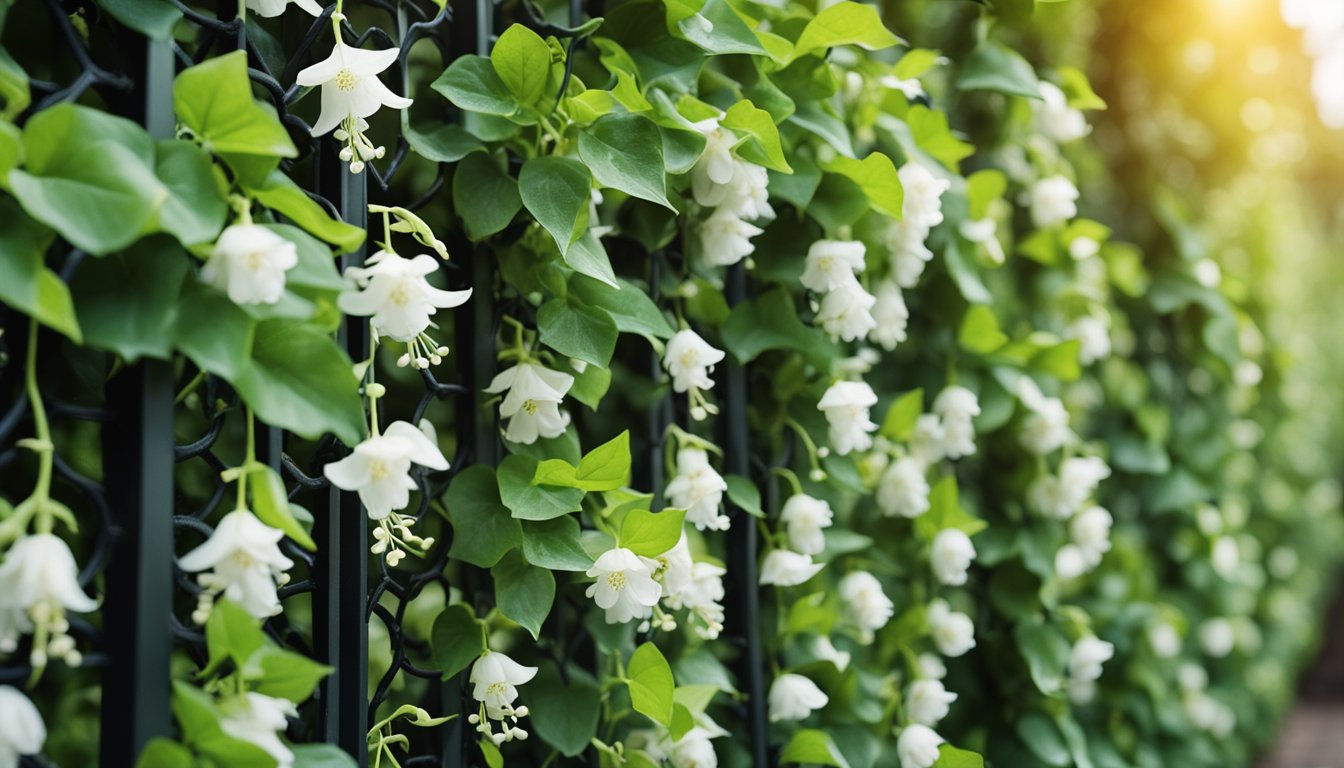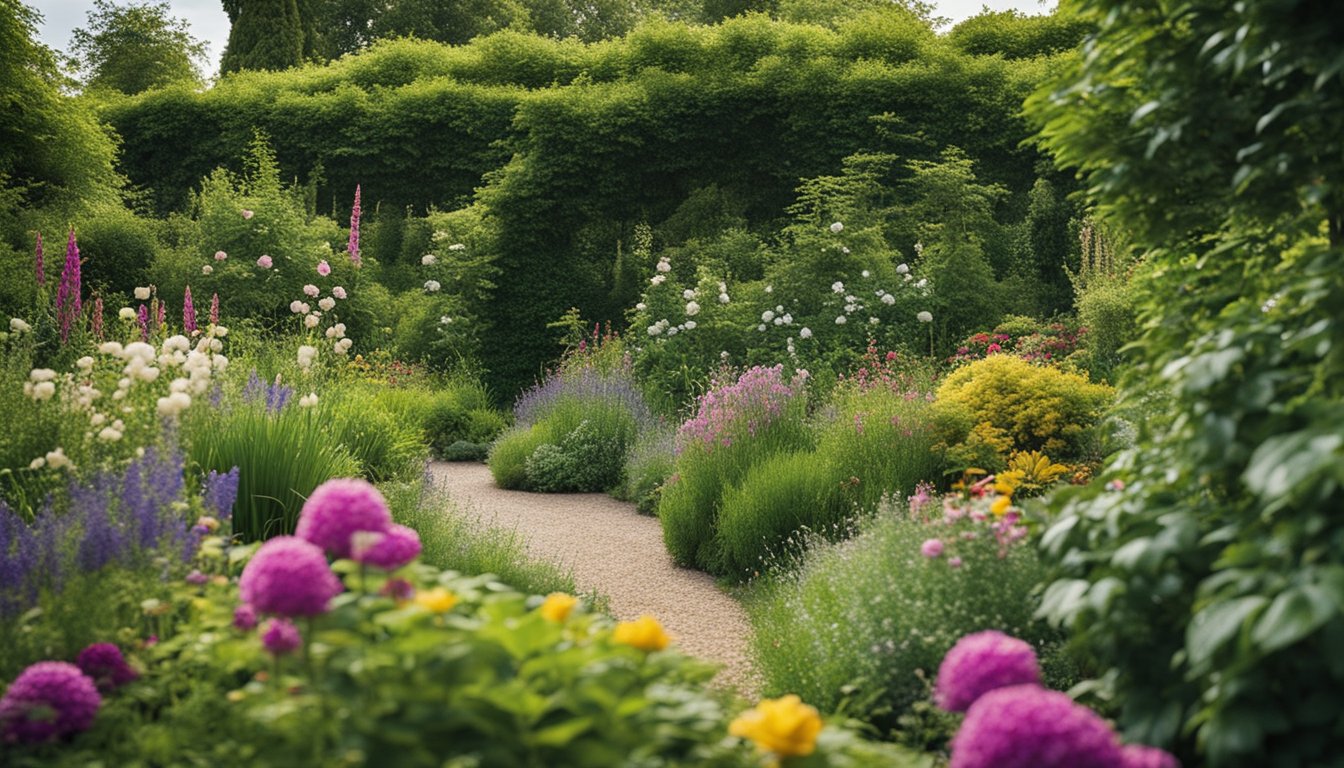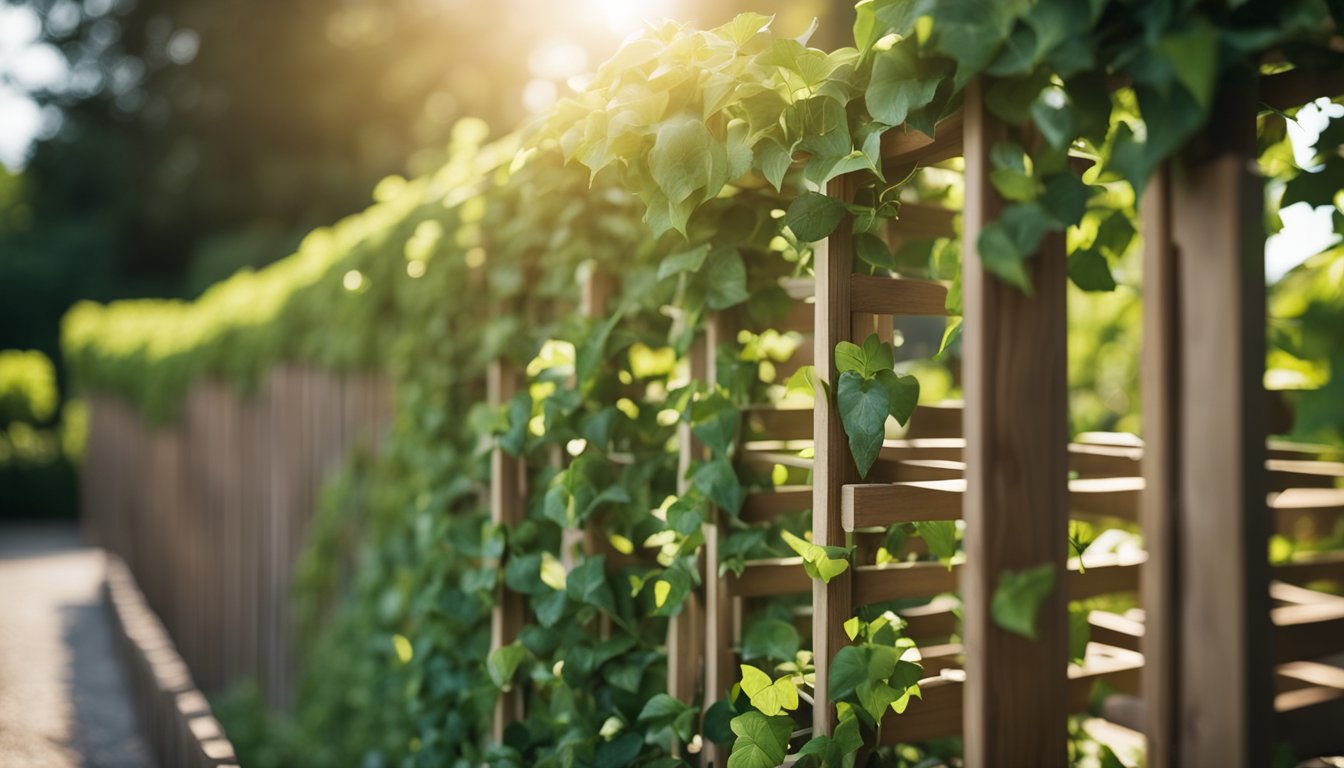Late updated: 08 Oct 2024 08:10
Written by: Emily Thornton
Native UK Climbers To Enhance Garden Privacy: Top Plant Choices and Care Tips
Enhancing privacy in our gardens while embracing nature's touch is a delightful pursuit for any gardener. Native UK climbers provide the perfect solution, offering verdant cover with added decorative appeal. One of the best choices is the native Ivy (Hedera helix), noted for its dense foliage that maintains year-round privacy. Its self-clinging nature allows it to cover walls and structures effortlessly, making it an excellent choice for those looking to enhance both privacy and habitat for local wildlife.

Dog rose (Rosa canina) also merits attention for its charming combination of thorny stems and fragrant flowers. With its colourful blooms attracting pollinators and its dense growth providing cover, it effectively marries aesthetic value with practical function in garden design. These native species not only contribute to privacy but also foster a welcoming environment for various wildlife species, from bees to birds.
The integration of native climbers can transform our outdoor spaces into secluded havens while adding ornamental charm. As we plan our garden projects, choosing the right plants and providing adequate structures will ensure these climbers thrive, adding both beauty and function to our garden landscapes.
Key Takeaways
- Native UK climbers enhance garden privacy with natural beauty.
- Ivy and Dog Rose are effective choices for coverage and wildlife support.
- Proper structures and care are essential for healthy climber growth.
Selecting Ideal Climbers for Privacy

Choosing the right climbing plants to enhance garden privacy involves considering several factors such as their evergreen or deciduous nature, their suitability for different light conditions, and their potential invasiveness.
Evergreen vs Deciduous Varieties
When selecting climbers for privacy, evergreen varieties are preferred because they provide year-round coverage. Hedera helix, or English ivy, is a popular choice as it maintains its lush foliage throughout the year and supports a vibrant habitat for wildlife.
Deciduous climbers, such as Clematis vitalba, offer seasonal interest with flowers and seedheads but shed their leaves in winter, potentially reducing privacy. For continuous screening, evergreens like hedera colchica are ideal due to their denser leaf structures and resilience.
Suitability for Different Light Conditions
The placement of climbers is crucial based on their light preferences. For shaded areas, English ivy is well-suited due to its adaptability to low light conditions. In contrast, plants like star jasmine thrive on a sunny wall, providing a fragrant floral display.
We must also consider semi-evergreen options like the potato vine, which prefer sunny or lightly shaded positions while offering some winter leaf retention. This flexibility makes it suitable for various garden environments, particularly where sunlight fluctuates.
Non-Invasive Climbing Plants
An important consideration is selecting climbers that are non-invasive. True climbers such as Clematis can be ideal choices as they are less likely to damage structures or dominate other garden plants.
While hedera helix is effective for coverage, it requires regular maintenance to prevent unchecked growth. Conversely, honeysuckle is known for its more controlled growth and aromatic blooms, making it a pleasant yet manageable option. By focusing on climbers that meet the specific needs of our garden spaces, we can achieve a balance of beauty and practicality without compromising the integrity of nearby plants.
Supporting Structures and Plant Care

Effective support structures and plant care are essential for promoting the healthy growth of native UK climbers. We'll explore the optimal trellis and support options and detail strategies for maintaining robust growth in your garden.
Choosing the Right Trellis and Supports
Selecting the appropriate support is crucial for climbers such as clematis, star jasmine (Trachelospermum jasminoides), and climbing hydrangea. Trellises are versatile and popular, providing stability and direction for the growth of these plants. Clematis armandi, for instance, requires sturdy trellises to support its vigorous growth.
Climbing roses benefit from arches or pergolas, offering both support and aesthetics. When opting for horizontal wires or mesh, ensure they are strong enough to handle the weight of mature plants. The right support not only enhances privacy but also encourages healthy growth and maximises visual appeal. Incorporating columns or obelisks can add vertical interest and structure to your space.
Maintaining Healthy Growth
Consistent care is essential for the vitality of these climbers. Regular watering is critical, especially during dry spells, to hydrate species like hydrangea seemannii and star jasmine. Mulching helps in retaining soil moisture and suppressing weeds.
Pruning is another key task; it maintains the health of clematis and climbing roses, removing excessive growth and encouraging blooms. Fertilisation can be beneficial during the growing season, providing the necessary nutrients for flourishing foliage. Monitoring for pests and disease, such as aphids or mildew, ensures that your climbers remain lush and vibrant throughout the seasons.
Frequently Asked Questions
In this section, we explore some of the best options for climbers in UK gardens. By focusing on native and evergreen varieties, we can enhance privacy and beauty with ease.
What are the top evergreen climbers that are suited for UK gardens to provide privacy?
Evergreen climbers like Trachelospermum jasminoides, commonly known as Star Jasmine, are excellent for UK gardens. Their fragrant blooms and hardy nature make them ideal for creating privacy screens. Ivy is another classic choice, providing dense coverage that remains vibrant throughout the year.
Which fast-growing climbing plants are recommended for creating a natural screen in a UK garden?
For quick coverage, Clematis and Honeysuckle are popular choices. These fast-growing plants can rapidly transform fences or trellises into lush green walls. Clematis varieties boast vibrant colours, while Honeysuckle offers both visual appeal and delightful fragrance.
Which low-maintenance climbing plants thrive on a pergola in a UK setting?
Cuccumber vine and Wisteria are both elegant and easy to care for. Their vigorous growth and delightful fragrance add charm to any pergola. Additionally, they require minimal intervention, thriving with just a bit of pruning and regular watering.
Can you suggest native climbing plants for UK gardens that offer year-round foliage?
Native climbers such as Clematis vitalba provide both beauty and function across all seasons. Old Man's Beard, as it is also known, offers lovely flowers and fluffy seed heads. It's perfect for those seeking a native plant that retains its appeal year-round.
What varieties of climbing roses are best for enhancing privacy in UK gardens?
Rosa canina, or Dog Rose, features abundant blooms and robust growth ideal for screening purposes. Its pink blooms and yellow centres are both attractive and effective at creating privacy. This variety suits the temperate UK climate well.
What climbing plants would you recommend for shaded areas to ensure privacy in a UK garden?
For shaded spots, Ivy's adaptability makes it a standout option. Its ability to grow in low light is unmatched, providing dense coverage suitable for creating a secluded outdoor haven. Honeysuckle can also thrive in partial shade, offering both coverage and fragrance.
